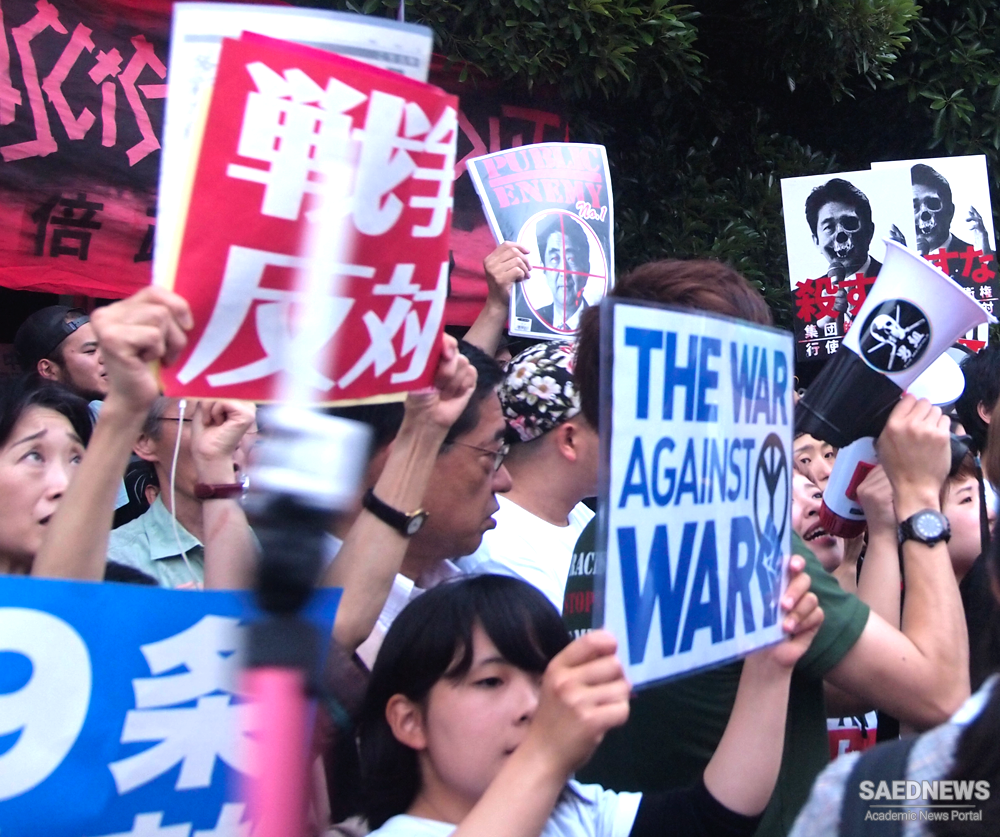In Japan absolute pacifism is official national policy, as enshrined in Article 9 of the postwar Constitution: "Aspiring sincerely to an international peace based on justice and order, the Japanese people forever renounce war as a sovereign right of the nation and the threat or use of force as means of settling international disputes. In order to accomplish the aim of the preceding paragraph, land, sea, and air forces, as well as other war potential, will never be maintained. The right of belligerence of the state will not be recognized." This extraordinary and unequivocal rejection of war has no precedent in history. Other countries have renounced war in their constitutions but never with such totality. Japan’s Constitution was imposed by US occupation authorities, but many Japanese nonetheless supported its rejection of war, and a vigorous peace and disarmament movement developed over the decades – although the traditions of nationalism also retained their appeal among some conservatives. Support for peace in Japan is understood as both a personal moral commitment and a social-political position that is linked to human rights, democracy, and economic well-being. The common term for peace advocacy is heiwa shugi, which is a combination of the Japanese words for “peace” and “ism.” The ambiguity of the term makes it difficult to differentiate between absolute and conditional pacifism, and for many the meanings overlap and often coexist. The term heiwa shugi has no equivalent in English, although the original Glasgow definition of pacifism was intended precisely to convey the principled yet pragmatic commitment to peace conveyed by the Japanese term. Article 9 is absolute in its language, but the political and legal interpretation of the clause has been more pragmatic. In practice pacifism in Japan has meant a “presumption against the employment of force, rather than its absolute rejection,” according to scholar Robert Kisala. The common understanding is that force may be used in self-defense or in humanitarian or peacekeeping missions authorized by the United Nations, but that other uses of military force are unacceptable. The government has pursued its foreign policy objectives mostly through economic means, principally through overseas development assistance.


 Path of Peace: From Violence to Pacifism
Path of Peace: From Violence to Pacifism














































